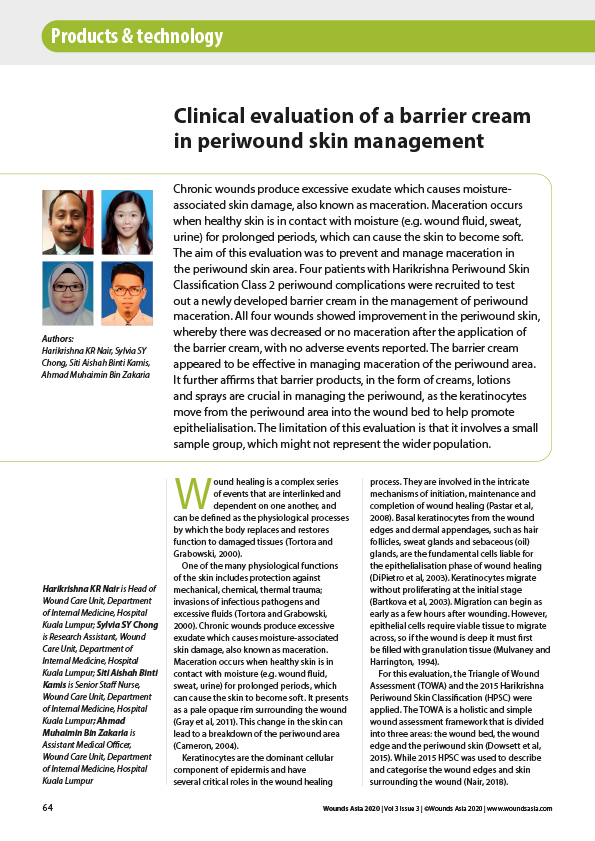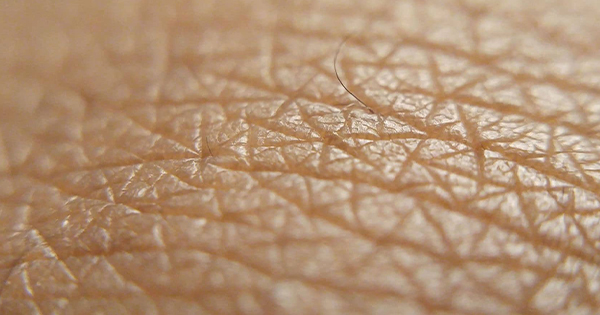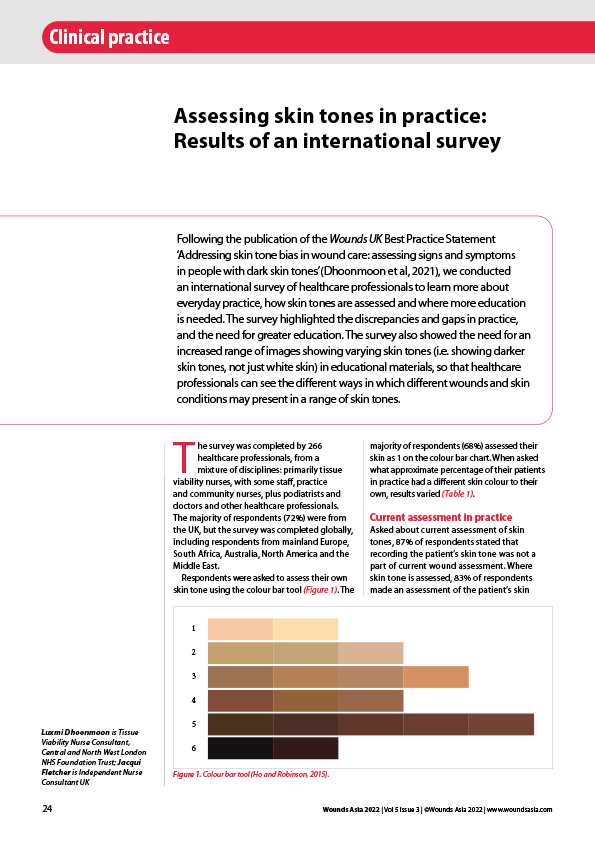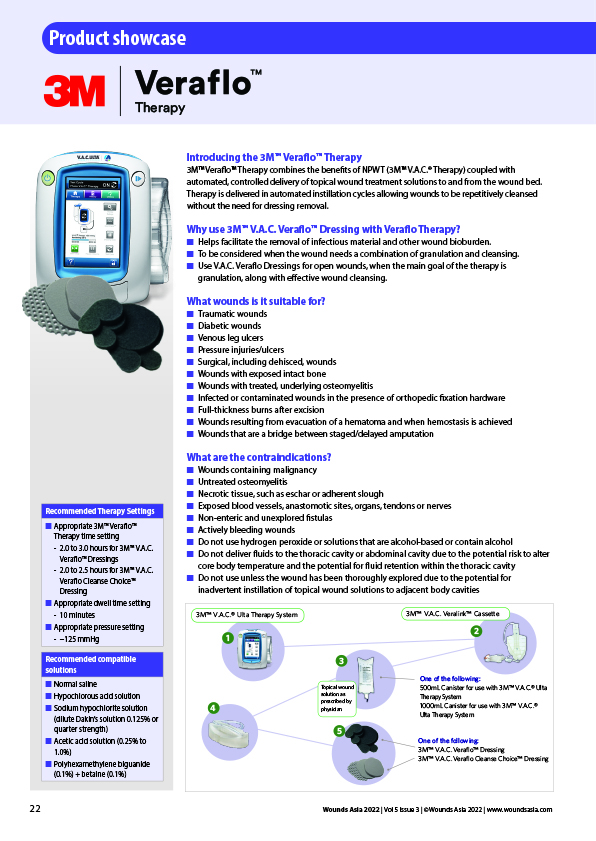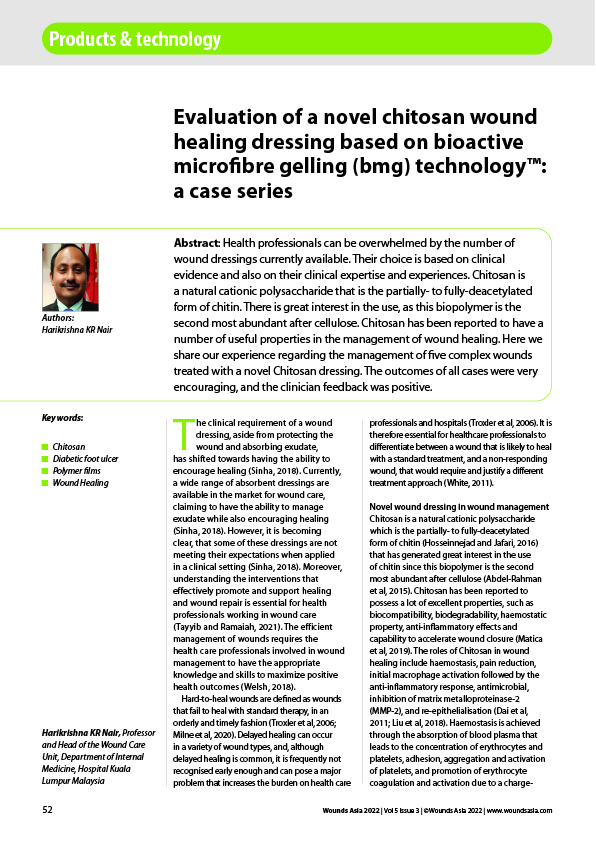Chronic wounds produce excessive exudate which causes moistureassociated skin damage, also known as maceration. Maceration occurs when healthy skin is in contact with moisture (e.g. wound fluid, sweat, urine) for prolonged periods, which can cause the skin to become soft. The aim of this evaluation was to prevent and manage maceration in the periwound skin area. Four patients with Harikrishna Periwound Skin Classification Class 2 periwound complications were recruited to test out a newly developed barrier cream in the management of periwound maceration. All four wounds showed improvement in the periwound skin, whereby there was decreased or no maceration after the application of the barrier cream, with no adverse events reported. The barrier cream appeared to be effective in managing maceration of the periwound area. It further affirms that barrier products, in the form of creams, lotions and sprays are crucial in managing the periwound, as the keratinocytes move from the periwound area into the wound bed to help promote epithelialisation. The limitation of this evaluation is that it involves a small sample group, which might not represent the wider population.

